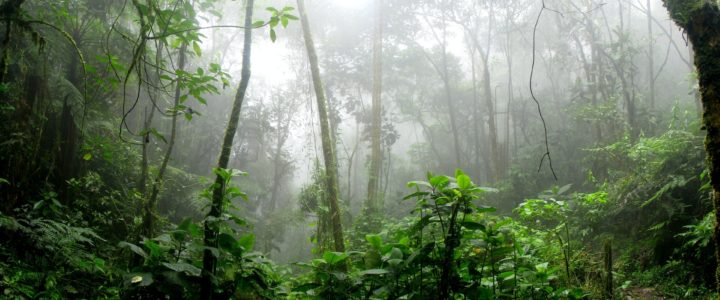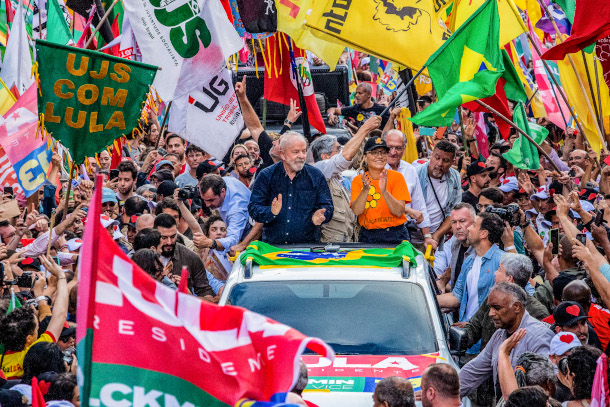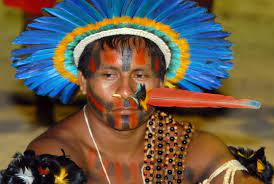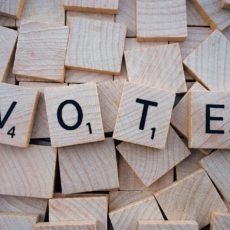
The recent change in leadership for the enormous, beautiful and environmentally significant country of Brazil has sent a wave of rejoicing around the world. Right wing deforestation king, Jair Bolsonaro, has been beaten in a tight election – an election which could have a powerful outcome for the trajectory of the climate crisis. Luiz Inácio Lula da Silva, known as Lula, has become Brazil’s next President, narrowly edging out the incumbent who’s name was synonymous with the rapidly increasing destruction of the Amazon and blatant corruption. It seems obvious that Lula’s victory is important, socially and environmentally, but can this really be a win for the planet? How much can he hope to achieve, and how quickly?

Serving the country as President is not new to Lula. He was President from 2003-2010, leaving office only because the constitution prohibits three terms – although he had an enviable 80% approval rating. He was inarguably Brazil’s most popular President, and Barrack Obama called him “the most popular politician on Earth”, just one year before Lula needed to leave the top job. During his Presidency he moved the needle greatly towards social equity, lifting 36 million Brazilians out of poverty. One of the novel approaches he took was giving low income earners cash incentives for ensuring their children were at school and had medical care. But he also methodically raised the minimum wage, finishing with it 67% higher than when he took office. The GFC took a far smaller toll on Brazil than almost anywhere else in the world, with the economy growing and inflation remaining in check. This enabled Brazil a seat at the table of global economic leaders India, China and Russia.
But after his Presidency we was accused of an array of corruption activities, including money laundering. He was convicted – by a judge who’s since been found by the Supreme Court to have been irredeemably biased against Lula – and spent nearly 600 days in jail, mostly in solitary confinement in maximum security facilities. After tireless work from a myriad of Lula supporters in all corners of the globe, and due to the findings in relation to the magistrate as well as the fact that no trail of corruption actually led to him, the Brazil Supreme Court annulled the conviction and Lula was released from prison. In time for him to run against Bolsonaro in this election cycle. Pragmatic, humble and not corrupt, Lula really is the polar opposite of the man he defeated at the polls.
We will fight environmental crimes… and we will ensure the protection of the rights and territories of Indigenous people against the advance of predatory activities
Election promises from the campaign trail of President-Elect Lula
President-Elect Lula has campaigned on continuing the fight for social justice while improving the country’s finances – he plans to further expand the social welfare services and increase taxes on the rich. But a huge platform for his campaign was that of protection of the Amazon and mitigation efforts for the climate crisis. Lula understands the importance of protecting the great swathes of this forest. He pledged to reverse the Amazon development policies Bolsonaro enacted; recommence the surveillance and monitoring of the rainforest; put a stop to the invasion and burning of Indigenous lands; and fight the calls for increased mining. Based on past performance these are not mere promises: in his first two terms as President, Lula dropped deforestation of the Amazon by three quarters that of 2004 levels. Bolsonaro then, in only one term, took deforestation levels to record highs. To ensure his aims can be met, it’s imperative that he reinstate the environmental protection agencies which Bolsonaro dismantled or made mute.

The Amazon spreads over 9 countries, occupying 2.1 million square miles (5.4 million square kilometers), with more than 60% of it contained within Brazil. When in her natural and healthy state, there are enough trees to annually absorb the same amount of carbon dioxide equivalent as Germany produces. The size of the ecosystem, which is the most biodiverse place on the planet , home to 10% of all the Earth’s wildlife, means it has incredible significance on global weather patterns. The trees of the Amazon release some 20 billion tons of water into the air every day – and thereby influence rainfall many thousands of kilometers away. Over the past 20 years, the Amazon has absorbed about 1.7 billion metric tons of CO2 from the atmosphere. But the Brazilian part of the forest has been steadily switching from carbon sequester to carbon emitter, releasing 3.6 billion metric tons more than it absorbed. Approximately 20% of the total area of the forest has been lost to deforestation.
Lula is planning to enlist global cooperation in his efforts to protect the Amazon and bolster Brazil’s economy. He is looking for fair global trade, where other nations don’t simply exploit his country for raw materials and leave her barren. Already, Norway has pledged to recommence financial aid to reduce Amazon deforestation – something which started during Lula’s last Presidency but stopped under Bolsonaro.

He will also place a strong emphasis on human rights, ensuring the protection of the 800,000 Indigenous people in Brazil from over 300 distinct groups. The Indigenous Missionary Council saw an increase of 180% in the cases of “invasions, illegal exploitation of resources and damage to property” on Indigenous territories last year, compared to the year before Bolsonaro took office.
But given the election victory margin was razor thin, and the fact that much of Lula’s backbench are financially supported by agribusiness, the new President won’t have an easy time of things. There have been reported road blockades across the country in protest of the win – so even before the human rights, social justice and environmental stewardship moves, Lula’s first task must be to reunite the people of Brazil. It is obviously in the interest of selling ‘newspapers’ (even if they are online) to convey a divided nation, and pit the far left and far right against one another in an exaggerated way – but in Brazil, there really is a divide to bridge, albeit likely not as pronounced as MSM is writing.
So it won’t be easy and it won’t happen rapidly, but President-Elect Lula’s Presidency, to begin on January 1st 2023, has the power to really positively shape the planet’s future. He understands that the true value of the Amazon is in her leaves being left untouched, and he sees that helping mitigate the climate crisis and protecting the Amazon are economically advantageous as well as ethically right. Brazil can take on the role of ‘climate champion’ and be a world leader in socio-environmental development. We wish Lula strength and resolve, and celebrate this monumental win for the planet!



